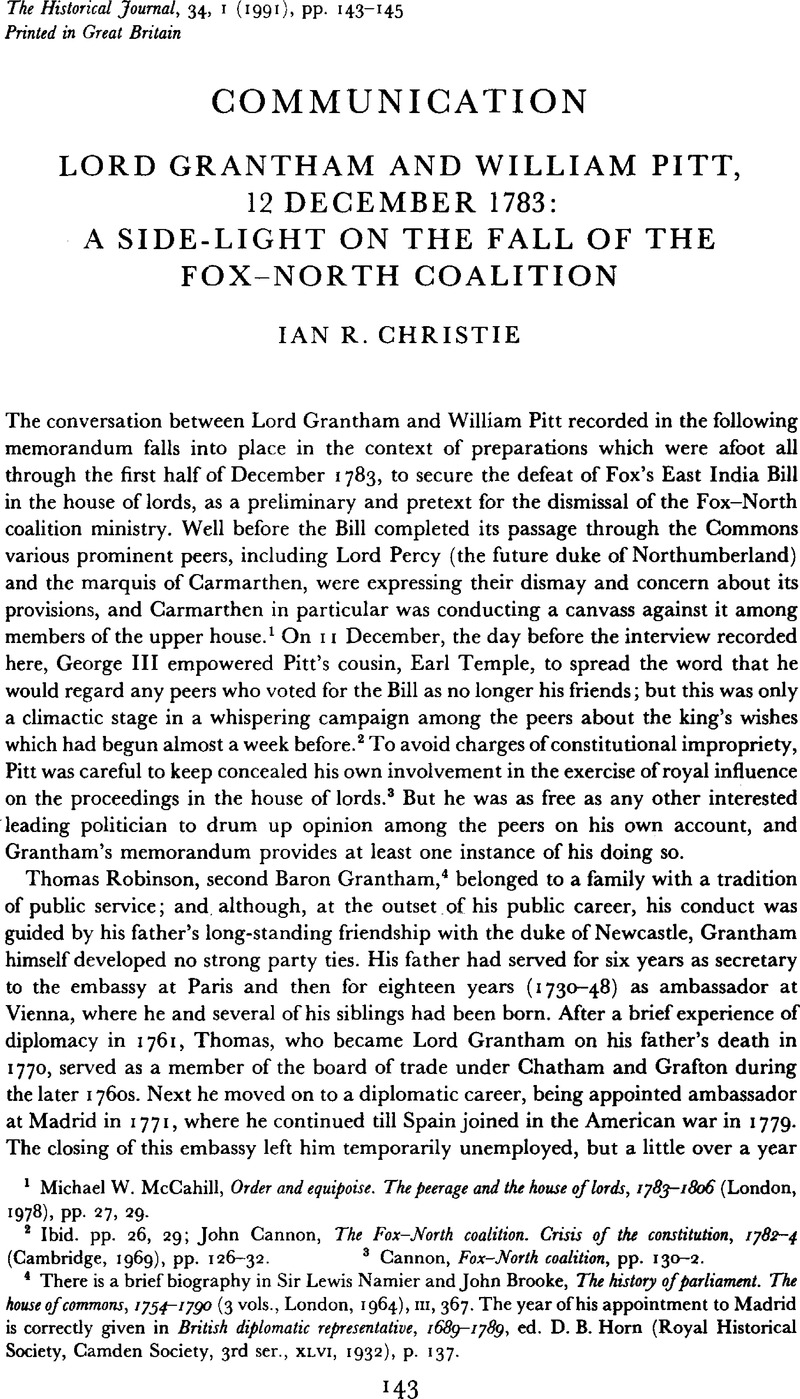Published online by Cambridge University Press: 11 February 2009

1 McCahill, Michael W., Order and equipoise. The peerage and the house oflords, 1783–1806 (London, 1978), pp. 27, 29Google Scholar.
2 Ibid. pp. 26, 29; Cannon, John, The Fox-North coalition. Crisis of the constitution, 1782–4 (Cambridge, 1969), pp. 126–32Google Scholar.
3 Cannon, , Fox-North coalition, pp. 130–2Google Scholar.
4 There is a brief biography in SirNamier, Lewis and Brooke, John, The history of parliament. The house of commons, 1754–1790 (3 vols., London, 1964), III, 367Google Scholar. The year of his appointment to Madrid, is correctly given in British diplomatic representative, 1689–1789 ed. Horn, D. B. (Royal Historical Society, Camden Society, 3rd ser., XLVI, 1932), p. 137Google Scholar.
5 The correspondence of King George III, ed. SirFortescue, John (6 vols., London, 1927–1928), VI, nos. 3837–8Google Scholar.
6 This judgement is based on a reading of both sides of their correspondence in the Lansdowne MSS at Bowood and the Grantham MSS in Beds. Rec. Off.
7 He voted against the East India Bill in both the divisions in the Lords, on 15 and 17 Dec. 1783.
8 Namier, and Brooke, , Commons, III, 363–4Google Scholar.
9 Beds. Rec. Off, Grantham MSS, L30/14/311. I gratefully acknowledge the permission of Lady Lucas to make use of this material.
10 Beilby Porteous (1731–1808), bishop of Chester (1776–87) and of London (1787–1808). The nature of his connexion with Grantham has not been traced. He voted against the East India Bill in both the divisions in the house of Lords, on 15 and 17 Dec. 1783.